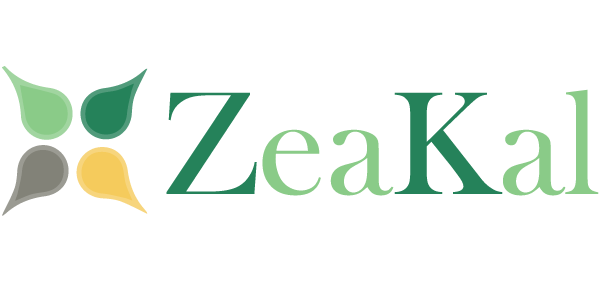By Han Chen, CEO and Ingrid Fung, Former Board Observer
To our community of agtech entrepreneurs, researchers, investors and leaders,
I hope you are all finding your feet as we continue to adjust to our new normal. More than anything, I hope that you and your loved ones find health and safety during this difficult time. Just as Thanos snapped the fingers of his infinity stone-clad gauntlet in The Avengers: Infinity War, COVID-19 , in the blink of an eye, quarantined more or less half our population. It’s triggering to see memes about employees concerned over their office plants (not being watered) — this is my worst fear should it come to pass for the plants in our lab.
After hours of pouring over spreadsheets and conference calls, it became clear that a lot is out of our control. I’m sure that this is a process that many of you have gone through in the past weeks as well.
As I chatted with Ingrid Fung (one of our former board observers), we discussed what the “new normal” would look like. While the COVID-19 pandemic is about disease prevention, it shines an acute spotlight on our food system and the role of science in enabling our way of life. For us at ZeaKal, it also reaffirms that our mission is highly critical. Here are some of our thoughts:

COVID-19 increased attention around food (in)security
COVID-19 caused many to worry about food insecurity. Shelves emptied and stores rationed key staples, adding more anxiety than the virus itself. Fortunately, these shortages are temporary and reflect the resilience of our food and ingredient companies. However, they made people pause and wonder, “What if a truck doesn’t bring bread next week?”
Interestingly, consumer choices changed in the blink of an eye. In our Toronto and San Diego grocery stores, many organic products remained on the shelf. In recent years, conventionally produced foods have been touted as inferior from both a health and environmental standpoint despite evidence supporting the contrary. The messaging however resonated so strongly (even amongst those who could not afford the price premium) that consumers sacrificed nourishment for the perception of quality. Ingrid told me a story from just a year ago, where she witnessed parents on fixed incomes put back staple items to purchase organic baby food for their children.
While catering to the buying power of the affluent can be a successful business model, the damaging market message has far more serious consequences for those in need. What fundamentally enabled this messaging to take hold was economic and social stratification of food. It should be a basic human right of everyone to receive the best nutrition. Now for the first time in over two generations, we wonder whether there will be enough calories at the table. We hope this opportunity urges people to think more critically about the issues that truly matter.
As an industry, we need to capitalize on the increased attention around food security and bring awareness on where the real risks lie. We get over 75% of our calories from a dozen crops. At any given point, the world only has about 75 days of supply. We experienced the worst flooding across the Midwest in 2019. With increased climatic volatility, one or two bad growing seasons could wipe out any grain surplus. Imagine further that the next virus is a plant or animal one that wipes out key staples and livestock.
These scenarios are not uncommon. Potato blight caused the Great Irish Famine, and recently, African Swine Fever wiped out half of China’s hog herd. In our increasingly globalized world, the havoc of food disruption is exponentially higher than what we saw with COVID-19.
The question is, are we ready to respond when these catastrophes occur?
covid-19 highlights necessity to improve agricultural sustainability
In a dark twist of fate, COVID-19 may be the change needed to bring people back to science. Social media demonstrated the widespread nature of science denial.
In the event of a food catastrophe though, developing new plant varieties takes much longer. Vaccines can be developed in as short as 18 months whereas it can take decades to develop new inbred lines. It takes nearly 10 years to commercialize a new trait, and nearly 5 years to commercialize new crop protection products. Every year, as we face more challenges, the bar gets higher to maintain food security. Additional and unnecessary man-made barriers only make it worse.
If we want to stave off global food insecurity, we should innovate now to ensure that science-based technologies can get into the field. A recent campaign by the U.S. Farmers and Ranchers Alliance highlighted that we only have around 30 harvests left to increase yields, improve sustainability practices and climate proof agriculture.
What the COVID-19 pandemic showed us is that when there is inaction, time becomes the enemy. In the case of ensuring food security, we have little time.
covid-19’s role in Rebuilding the foundations of agricultural institutions
In that vein, we must safeguard and strengthen our agricultural institutions. We will win this battle against COVID-19 because of the unified global effort to share information and resources. Our governments fell in line with the recommendations of our international and domestic health organizations. Universities and companies leveraged their expertise to come up with vaccines and, in the short-term, treatments. The strength, resources, and confidence in these institutions allowed an effective response to the pandemic.
“What the COVID-19 pandemic showed us is that when there is inaction, time becomes the enemy. In the case of ensuring food security, we have little time.”
When we look at agriculture and see whether a similar response could mobilize around a crop pandemic, serious doubts emerge. From a regulatory standpoint, global agriculture is much more fragmented. Political considerations and public fear influence decision-making. In the case of biotech, the inefficiency of regulations goes beyond the prudent level of scrutiny dictated by science.
What’s worse, instead of galvanizing around public science communication efforts, many pander to anti-science demands. This is in stark contrast to the heroic efforts of agricultural scientists in the past, such as seed bank pioneer Nikolai Vavilov (and his staff who died during WWII protecting one of the world’s earliest seed stores) or those of Dr. Norman Borlaug (father of the Green Revolution), upon whose shoulders our industry stands.
These social and regulatory changes eroded the infrastructure, talent and pipeline of innovation that will address challenges to food security. Former President of DuPont Pioneer Paul Schickler sees large companies having a much narrower focus and research capability because of the headwinds in our industry.
This year, Finistere Ventures and Ohio State University hosted a roundtable session with leading agricultural universities called Future AgTech R&D. One clear conclusion: funding for important biotech innovation in agriculture dried up at universities. There is less research, less new talent than ever among our leading land grant universities. While entrepreneurs play an important role in terms of our ability to nimbly advance science into products, most of us do not possess the infrastructure to develop novel technologies.
Food security is a matter of national security. We cannot allow economic efficiency to be the only factor that dictates what goes into our technological pipelines if we are to future-proof our food supply. If the status quo with respect to research focus persists, when the major disease strikes one of our major crops, we will not be prepared to respond even on a decade-scale timeline.
covid-19 underscores importance of agriculture as an essential service
What is clear now is the importance of the entire agrifood value chain as an essential service. We must act appropriately to prepare our industry for the future. The challenges that we all face, regardless of where you are in the world, will be global by nature. If we continue to retrench and allow fear, protectionism and xenophobia to dictate our actions, we will not be ready to face these challenges.
Given the long innovation timelines of agriculture, it is essential that we bring these challenges to the forefront now, while we have a receptive audience. Pandemics, climate change and resource depletion do not see borders. They cannot be negotiated or bargained with. Unless we are prepared to take on this challenge together, the new normal when an agricultural pandemic hits will not be one we recognize. Let us reflect on our industry, and our duty to protect the future. Now is the time to reset the chess board and be prepared before we enter the Endgame.
